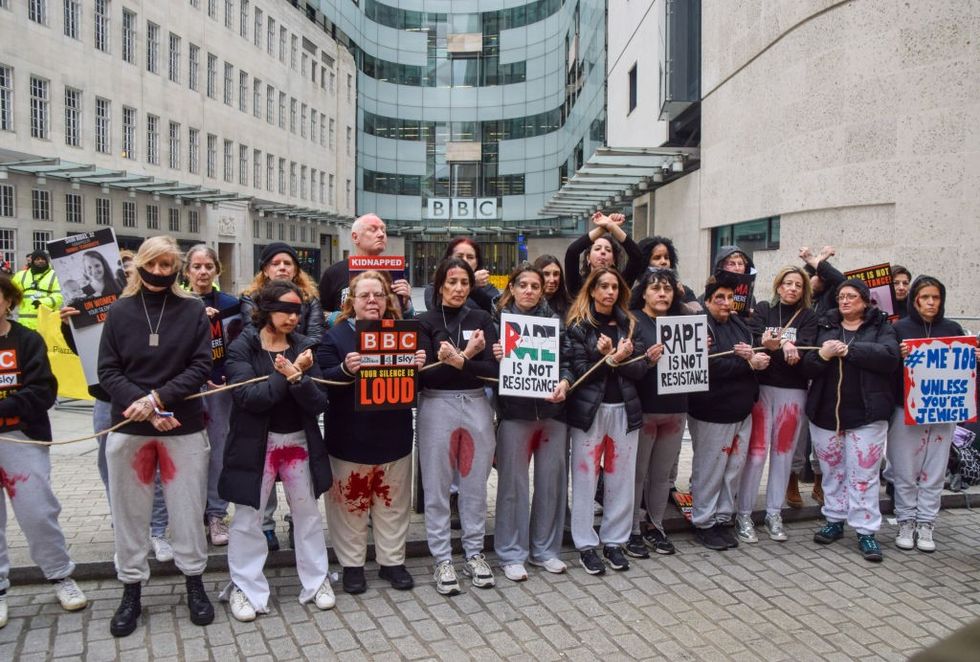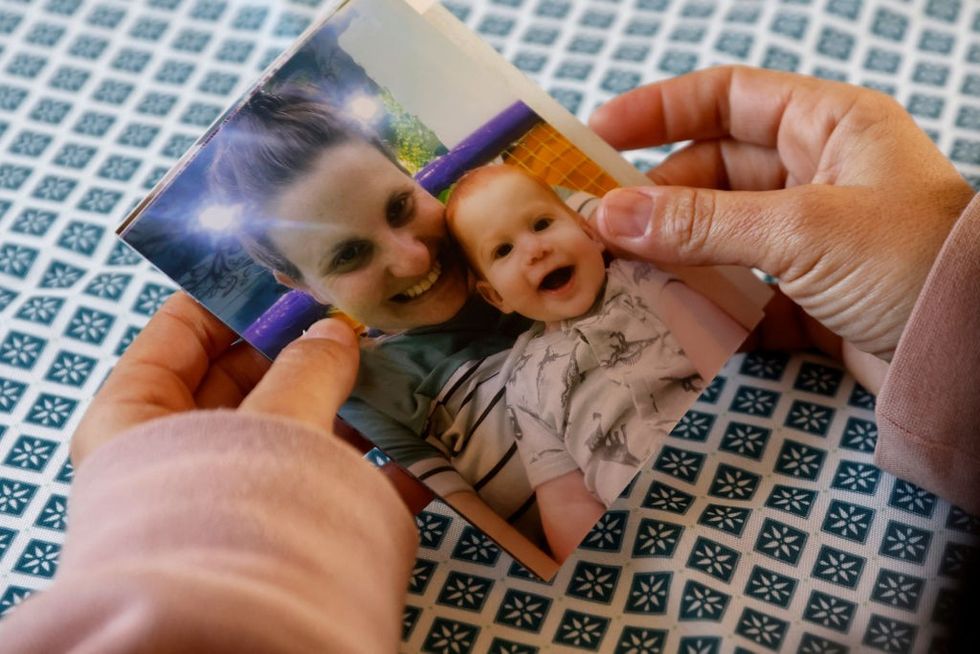The BBC has issued yet another grovelling apology after a presenter described Israeli hostages held by Hamas as “prisoners”.
BBC News presenter Nicky Schiller told viewers on Friday that three “Israeli prisoners” were set to be released on Saturday.
The three men – Yarden Bibas, 35, Ofer Kalderon, 54, and Keith Siegel, 65 – were taken hostage by Hamas during the atrocious October 7, 2023, terror attacks in Israel.
On Friday afternoon, the BBC issued a live apology for describing the three men as “prisoners”.

Pro-Israel activists protesting outside the BBC in February 2024
Getty
It read: “Earlier today on BBC News we reported on the names of those three Israeli hostages who are due to be freed tomorrow.”
“At one point during the coverage we mistakenly called the hostages ‘prisoners’ and we would like to apologise.”
The three men were released early Saturday morning in exchange for 81 Palestinian prisoners.
Yarden Bibas is the father of the two youngest hostages taken – Ariel, five, and Kfir, two.
MORE LIKE THIS:
The children along with their mother Shiri Bibas remain captive. Their condition is also unknown.
Hamas previously claimed that Bibas and her children were killed in an Israeli air strike, however this has not been confirmed.
The uncertainty surrounding the family’s condition led Israel to express “grave concern” over their wellbeing.
The BBC’s decision to describe the hostages as “prisoners” is not the first time the UK’s national broadcaster has had to apologise for its reporting on the Israel-Hamas war.

The children along with their mother Shiri Bibas remain captive. Their condition is unknown
Getty
In November, the BBC apologised after journalist Monica Miller twice mistakenly claimed that the IDF were “targeting medical staff and Arab speakers” at Gaza’s largest hospital.
The Israeli embassy hit out at the BBC at the time, saying it “must do better”.
In September last year, the broadcaster was also accused of breaching its own editorial guidelines over 1,500 times during the peak of the war.
Lawyer Trevor Asserson led an inquiry into the BBC’s coverage which stressed that the broadcaster showed a “deeply worrying pattern of bias” against Israel.
The BBC responded to the report, stating it had “serious questions” about its methodology but would “carefully consider” the findings.